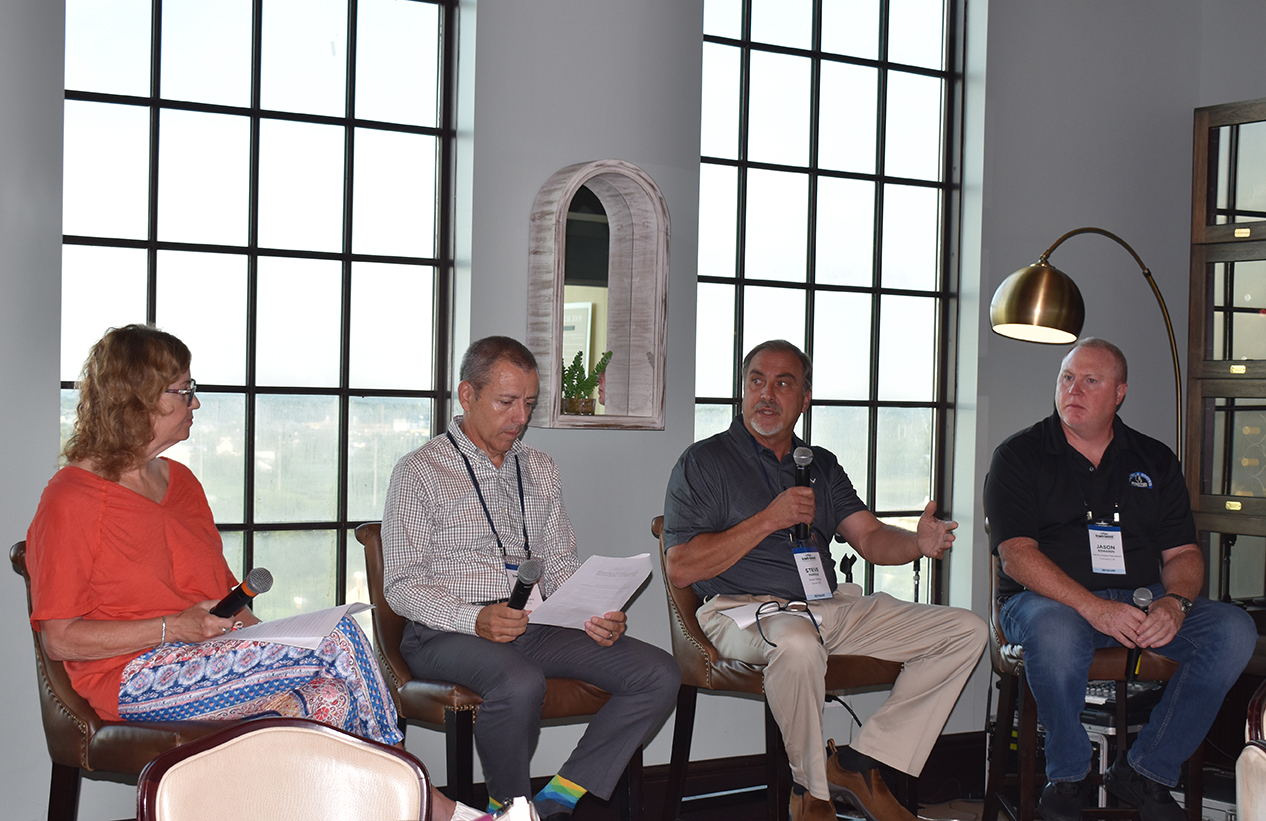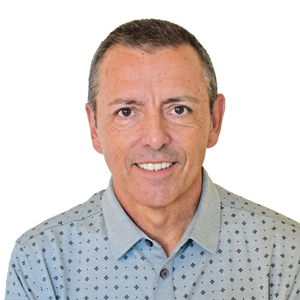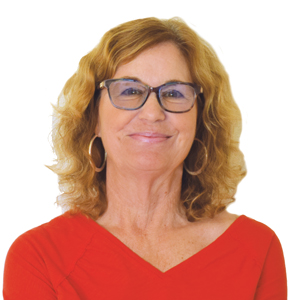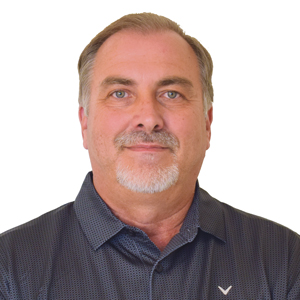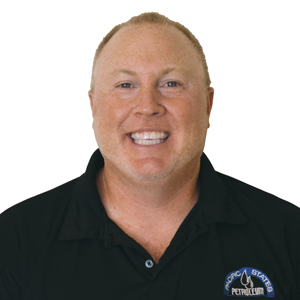LP Gas Growth Summit panel: How 4 propane retailers remain resilient
On the final day of the 2022 LP Gas Growth Summit in Orlando, Florida, four decision-makers at retail propane operations reflected on workforce development efforts, operating in a post-pandemic environment and more during a panel discussion.
LP Gas Editor-in-Chief Brian Richesson moderated the panel, which consisted of Cathy Wallace, general manager and owner of San Isabel Services Propane; Ron Snyder, COO of DCC Propane; Steve Farkas, director at Sharp Energy; and Jason Edwards, general manager of propane operations at Pacific States Petroleum.
Here we present insights from the panelists, edited for brevity and clarity.
Where operations stand today
LP Gas: What has your business experienced thus far in 2022? What issues have you been watching?
Snyder (DCC Propane): It comes down to staffing, being able to attract and retain employees needed to operate our businesses. In addition to that, it’s trying to manage our way through the inflationary costs that are impacting our business. We all start each year with a budget that we try to manage to, but due to increased wage and fuel cost, this year brings some unique challenges.
Wallace (San Isabel Services Propane): People issues are the biggest things that we’re dealing with. We’ve got a lot of turnover in our driver ranks. That’s very concerning. We’re trying to work with our partners here in the industry to really figure out a way that we can retain drivers and not have them say: “Hey, I’m going to go to Lowe’s because they’re going to pay me another $6 an hour, and I don’t have to drive a hazmat truck, and I don’t have to go up the hill in the wintertime.”
Farkas (Sharp Energy): One area of focus is governmental affairs. We have a very active regulatory environment in many of the states we operate in, whether it’s electrification or government agencies wanting to cover more territory and expand their reach into our industry and businesses. As we come into fall 2022 and beyond and [look at] the regulatory environment, it’s critical we all remain engaged with the federal, state and local regulatory issues that impact our industry. An effective way to remain engaged is to work with our national/state gas associations. I recommend we all stay on top of the issues and work to maintain a strong voice when addressing issues that impact our industry.
Edwards (Pacific States Petroleum): For California, being that it’s a very diverse environment and state, we go through a lot of the air quality issues with CARB (California Air Resources Board), also trying to reduce the carbon footprint and provide affordable products for our customers.
Operating in a post-pandemic world
LP Gas: What have you learned about your business based on the challenges the pandemic presented, and how are you operating differently because of that?
Wallace: We continued to offer our people incentives to continue to drive. We have a four-day workweek. We pay overtime when the routes are tight in the wintertime. We’re just trying to make sure that we maintain the integrity of the business and make sure people are happy.
Snyder: One thing we discovered is our company and industry is very resilient. The people in our industry have a lot of drive and are very dedicated and are willing to do whatever it takes to take care of the customers and meet their needs.
COVID taught us that we need to have backup plans for staffing and interfacing with the customers. COVID brought several challenges, but our industry was extremely fortunate to be less impacted than some other industries.
Farkas: The pandemic was a chance for us to evaluate our business and look at many things that we’ve done for years. We started to look at every thing we do and how we did it. We asked questions in order to better understand our operations: Why are we doing this? How much time does that take? Is there a better way? Are there technology solutions that could be put in place to address the challenge?
The pandemic did highlight the resiliency of our company and our suppliers. Internally, we were blessed with a staff of very dedicated professionals. We came through the pandemic operating environment well considering it was a situation that we were somewhat unprepared for. At the end of the day, communication was key to success. One area of focus moving forward is evaluating our deployed technology. Technology will be embraced at levels not seen in the past.
Edwards: In our business, it was unique in the aspect that we’re a petroleum fuel company. So we were able to diversify our products and provide more than just propane to our customers. We try to provide them with a total solution, providing every single product that we can possibly find for them to streamline their business to make it even more efficient and effective for them.
We also really emphasized with our people that it’s all about taking customer service to the next level. We tried to get into the mindset of: What we’re doing yesterday is just not good enough for us today.
Fuel prices
LP Gas: How have you adapted to high fuel prices?
Snyder: We are focused on driving improved productivity through routing efficiencies. Throughout my 38 years in the industry, there has always been a focus on delivering improved productivity, but given the current inflationary factors it’s added a level of urgency.
Farkas: It’s an enterprise-wide issue for us. Increased fuel cost is a conversation with every employee that we have so that they all understand the situation we’re facing and how it interacts with our operating budget. Our solution is a team effort, making sure that everyone understands what their piece of the puzzle is. Drivers need to understand the impact of engine idle time. With understanding, idle time becomes something drivers now think about. A focus on miles driven, effective dispatching and routing, is another piece of a puzzle. What we’ve found is, in most cases, the drivers appreciate the information and involvement. They’re a critical part of the business, They’ve taken ownership of the things they can control, and we’re seeing some really positive results.
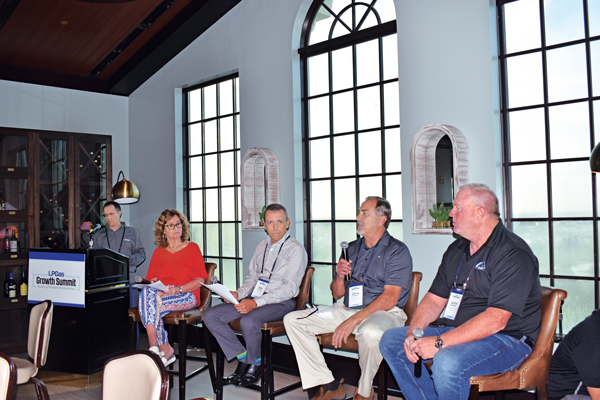
Growth Summit panelists discuss 2022, ongoing labor shortages and high fuel prices. (Photo by LP Gas staff)
Workforce development
LP Gas: Please share one solution that can address the lack of employees or the employee shortage that we’re all facing.
Wallace: What we’re doing is looking at our operations top down, bottom up. That’s all about the people. We have done some increases to wage. Right now, we’re looking at some new medical insurance options. You can’t just throw somebody another five dollars. It has to be meaningful to the whole company. We’re working on how to further advance their loyalty to our business. [It’s] not necessarily always financial, but what can we offer them to make them want to stay? A lot of times, it is another dollar, but we have an environment that’s very self-sustained. Everybody works together, and that’s key for us.
Snyder: One program we implemented was an employee referral program to encourage individuals to help recruit new employees to join our team. Our local team members know most of the people in the communities they live and serve, making them a great resource to assist with our recruiting efforts. This program has been well received by our teams and has proven to be an effective approach.
Farkas: As far as finding new drivers, we’re looking at the driver training schools and tech schools. We have a number of organizations we interact with. One organization up in the mid-Atlantic is Vets2Techs, where you’re taking military people that are transitioning from the military to the private sector. These are well-trained people looking for private sector jobs. Vets2Techs is a good avenue for the propane industry to find employees.
Edwards: Our company changed to becoming an ESOP company, so every employee became a 100 percent owner of the company. They’re giving back even more than they normally would have because now they’re part of the solution.
We’ve hired an internal recruiter who works for our company. We can put [potential] employees with someone who has actually been in our company, has gone through the steps of being a driver, a dispatcher and now a recruiter. [It] has been beneficial to us because we’ve been able to not only retain our existing drivers but also gain new drivers who had no idea of what a driving position looked like.








